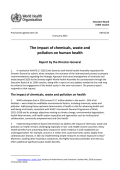
This report provides an update on the World Health Assembly intersessional process on the sound management of chemicals and waste beyond 2020, outlining the health sector’s role in mitigating impact through multisectoral collaboration and evidence-based interventions.
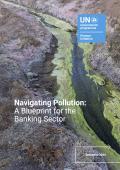
This report provides banks with guidance on navigating pollution-related challenges and opportunities, emphasizing the financial and societal impacts of pollution.
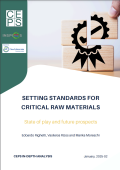
This report explores the growing role of standardization in the critical raw materials sector, highlighting how standards help businesses comply with new regulations and facilitate innovation in extraction, processing and recycling.
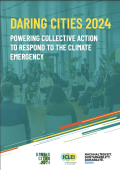
This report highlights key achievements from Daring Cities 2024, which brings together global policymakers and leaders to tackle the interconnected challenges of climate resilience and sustainable urbanization.
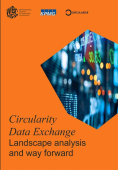
This paper explores the landscape of circularity data practices, challenges and opportunities to create consistent, credible and comparable data exchange across industries.
